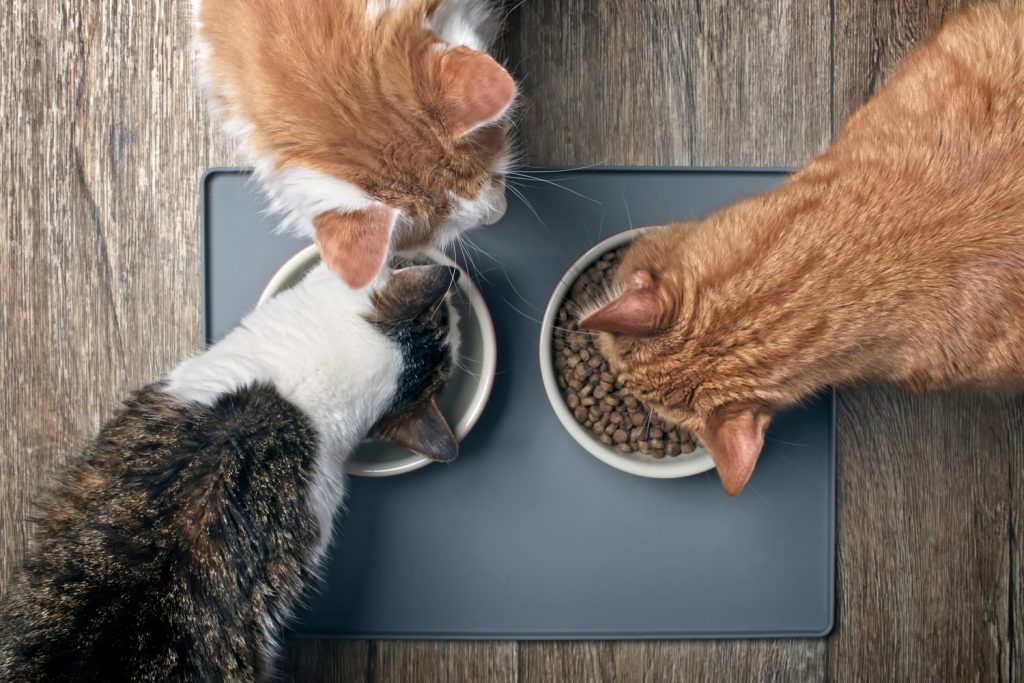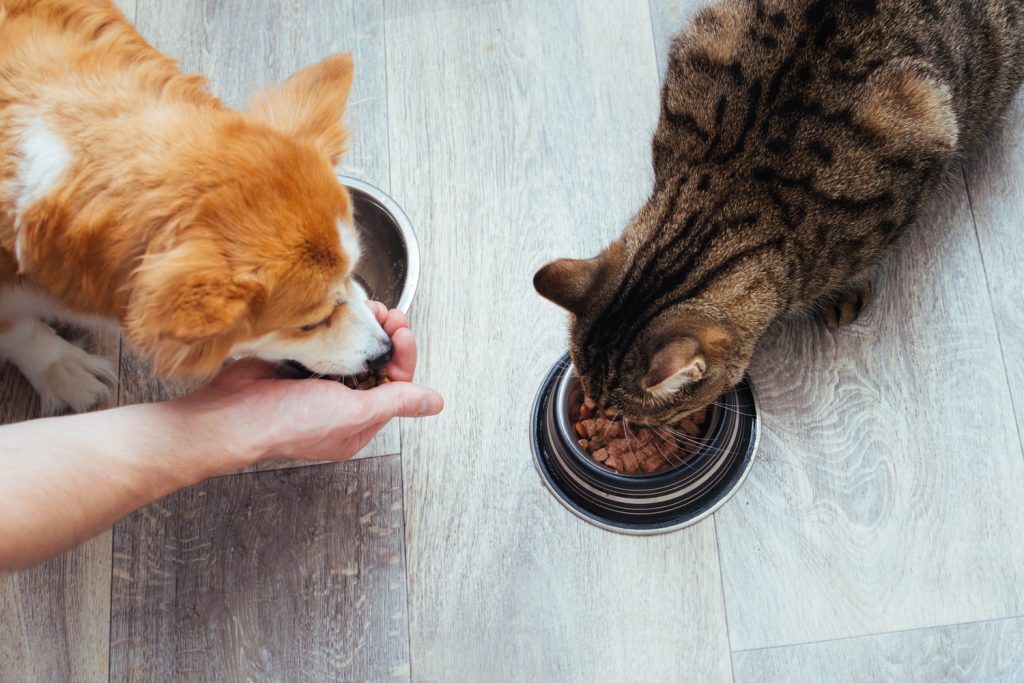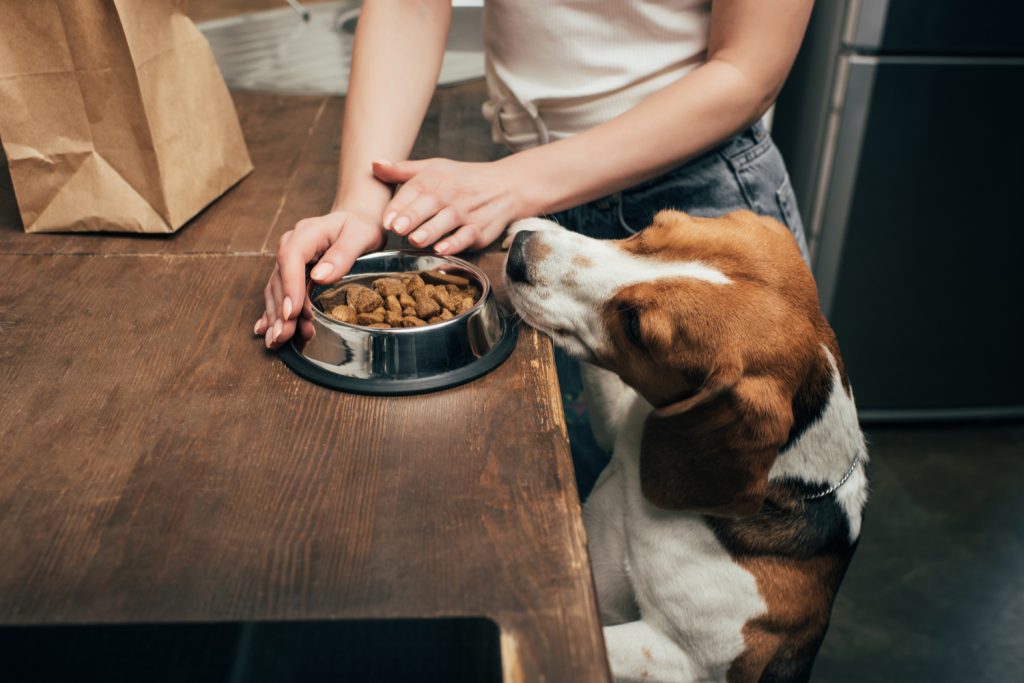Dog maintenance and nutrition is a quite sensitive process that needs to be controlled meticulously by the owners. As a result of “humanization” of dogs as a member of the family, the owners started apply their nutritional methods to their pets. Dogs are inclined to break out of their nutritional routines. In this context, they might want to share your meal, and sometimes, they might even display behaviors like begging for you to share your meal with them. Dog owners boggle over sharing meals, and they often have the following questions: “What are the foods that dogs must not eat?”, or “What are the toxic foods for dogs?”
Foods That Dogs Must Not Eat
Certain foods that we love to eat in our daily lives can be harmful for our pets. We must remember that capabilities of the digestion system, and the nutritional requirements of the dogs are very different from ours. In good faith, dog owners present certain foods which they personally enjoy eating to their pets. To say the least, you will face digestion system related problems if dogs eat foods that are harmful for them. In case of long term and high amounts of consumption, vital problems with severe clinical symptoms might occur.
The foods and beverages below must not be provided to dogs and must be kept out of reach of the dogs.
– Chocolate: It causes intoxication of the dogs due to methylxanthines (theobromine) it contains. Although chocolate is toxic for all breeds, small dog breeds are more severely affected by theobromine toxicity. The severity of poisoning depends on consumption amount, hunger state and individual sensitivity.
– Coffee: Similar to chocolate, coffee beans contain methylxanthines (caffeine) as well. Caffeine is rapidly absorbed from the stomach after consumption, and reaches to the peak level in blood circulation within 30 to 60 minutes.
Methylxanthine toxicities are mostly caused by chocolate consumption. As methylxanthines can pass to the fetus through blood circulation in pregnant dogs or to the milk in breastfeeding dogs, the fetuses or the puppies relying on their mother’s milk might also be affected by toxicity.
Clinical signs start with drinking excessive water (polydipsia), vomiting, diarrhea and uneasiness. Afterwards, hyperactivity might be observed. Depending on the consumption level, it might lead to critical effects on the respiratory and circulatory system.
– Xylitol (artificial sweetener): It is used in many products such as chewing gums, candies and pastries for different reasons. Xylitol is present in the composition of oral care products and some chewing gums due to its antibacterial effect. Xylitol poisoning observed in the dogs are mostly associated with the consumption of such products.
Xylitol directly stimulates the pancreas to release insulin. For this reason, xylitol toxicity starts with hypoglycemia and hyperinsulinemia, and continues with such symptoms that might lead to liver necrosis.
– Allium species: Onion, garlic, leek and scallion are included in this group. The compounds responsible for poisoning are organosulphoxides. Processing those plants through boiling, frying, drying, etc. does not eliminate the toxic effect. Namely, poisoning might result from eating cooked meals or such products that contain onion or garlic powder. Dogs are very sensitive to allium toxicity.
Clinical signs depend on consumption amount. Depression, stomach ache and vomiting are observed in the beginning, then blood-related (hematologic) changes occur. In case of long-term consumption, hemoglobinuria (hemoglobin presence in the urine) that is characterized by anemia and red/brown urine color might be observed.
– Grape and related products: Grape contain many substances (flavanoids, tannins, polyphenols, etc.) that might be harmful to dogs. Toxicity might occur due to eating fresh, processed or fermented grapes or grape pulps. For dogs, the toleration limit (amount of grapes resulting in poisoning) varies individually.
Clinical signs generally start with loss of appetite, diarrhea, stomach ache and changed urine amount. In case of diarrhea and vomiting, undigested grape particles can be seen. Advanced cases might result in acute kidney failure and related metabolic damages as well as death.
– Ethanol (ethyl alcohol): It is a component of alcoholic beverages. It is also available in drugs, paints, varnishes and fuels. Consumption of alcoholic beverages or raw (fermented) dough, rotten fruits, etc. might also cause toxicity.
Ethanol is rapidly absorbed from the bowels and passes to the blood, then affects the central nervous system. Clinical signs start with central nervous system-related conditions such as depression and imbalance. In cases related to raw dough consumption, excessive gas accumulation (swelling) might be observed in stomach and bowels.
– Avocado: The fruit itself or its seed or leaves might cause toxicity. Avocado contains toxic fatty acids and persin. Although dogs do not like to eat it, its consumption is known to cause toxicity in mammals.
Clinically, the basic symptoms of poisoning can be observed. Moreover, heart might be affected and accordingly, related symptoms such as arrhythmia, cardiac muscle damage, etc. might occur.
– Milk and dairy products: By their feeding physiology, dogs can digest lactose, i.e. milk sugar, at a high level only when they are puppies only sucking milk. After weaning, their capacity to digest lactose rapidly decreases. Feeding the adult dogs with milk, yoghurt, cheese, etc. containing lactose or giving the puppies more lactose than they are able to digest might result in diarrhea, swelling and digestive system problems.
Furthermore, it should be noted that feeding the dogs with the following foods might cause serious health risks:
– Processed meat products containing excessive salt, spices and other additives
– Stale products (expired, rancid and rotten products)
– Raw egg
– Raw fish
– Foods produced for other species
– Products containing excessive fat or oil, and similar products
-Bone: Notwithstanding the fact that dogs are able to eat bones by their nature, eating bones might cause rather serious problems. Dogs’ teeth are quite strong, so they break the bones which they eat or play into too many pieces and this might result in internal organ ruptures.
-Cat food: The fat and protein ratio of the cat food is significantly higher compared to dog food. If dogs eat cat food, this might cause many important problems such as heart impairment, fatty liver and especially, high blood pressure.
-Salt: As in the case of humans, eating too salty food might cause blood pressure, heart and kidney problems also for dogs. Excessive salt consumption leads to electrolyte imbalance in dogs’ bodies.



